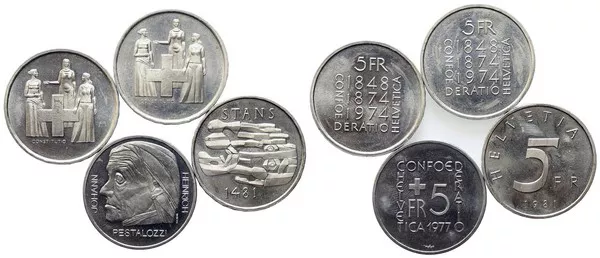The Swiss Franc, often denoted as CHF, is a currency that holds a unique and robust position in the world of finance. It’s not just a unit of exchange; it’s a reflection of Switzerland’s economic stability, political neutrality, and financial prowess. But what is the value of the Swiss Franc, and why does it matter? In this article, we’ll delve into the factors that determine the value of the Swiss Franc and why it’s of significant importance on the global stage.
A Safe Haven Currency
One of the key factors that contribute to the value of the Swiss Franc is its status as a safe-haven currency. In times of economic uncertainty and global crises, investors tend to flock to assets that are considered safe. The Swiss Franc has earned its reputation as a safe-haven currency due to Switzerland’s long-standing political neutrality and a history of stability. This means that when turmoil strikes in other parts of the world, many investors seek refuge in Swiss Franc-denominated assets. This increased demand can cause the value of the Swiss Franc to rise.
The Swiss Economy
Understanding the value of the Swiss Franc requires a closer look at the Swiss economy. Switzerland is known for its strong and diverse economy, which plays a significant role in supporting the currency. The country boasts a robust financial sector, a highly skilled workforce, and a long history of innovation. Additionally, the country has a low inflation rate, a stable political climate, and a strong rule of law. All these factors contribute to the Swiss Franc’s strength, making it attractive to investors and traders.
Currency Pegging
The Swiss Franc has been involved in a unique practice of currency pegging in the past. The Swiss National Bank (SNB) historically pegged the Swiss Franc to the Euro (EUR), maintaining a fixed exchange rate. This was done to ensure the stability of the Swiss Franc and to support the country’s export-oriented economy. However, in January 2015, the SNB abandoned this peg, causing a sudden and significant appreciation of the Swiss Franc. This move had a substantial impact on the currency’s value, making it stronger against other currencies.
Interest Rates and Monetary Policy
The Swiss National Bank’s monetary policy and interest rate decisions are crucial determinants of the Swiss Franc’s value. Like other central banks, the SNB adjusts interest rates to control inflation and promote economic growth. Lower interest rates can make the Swiss Franc less attractive to investors, potentially reducing its value. On the other hand, higher interest rates can boost the currency’s value as they offer better returns for investors. Therefore, monitoring the SNB’s monetary policy decisions is essential for understanding the Swiss Franc’s value.
Inflation Rate
Inflation is another vital factor when considering what drives the value of the Swiss Franc. Switzerland has a long-standing commitment to maintaining low inflation rates. This commitment not only supports the purchasing power of the Swiss Franc but also attracts international investors. Low inflation means that the currency’s real value remains relatively stable over time, making it an attractive option for those looking to preserve their wealth.
Trade Balance
The Swiss Franc’s value is also influenced by the country’s trade balance. Switzerland has a significant export-oriented economy, with a strong emphasis on industries like pharmaceuticals, machinery, and financial services. A trade surplus, where the value of exports exceeds imports, can lead to an appreciation of the Swiss Franc. This is because foreign buyers need to purchase Swiss Francs to pay for Swiss products, increasing demand for the currency.
Global Events and Geopolitics
Global events and geopolitics play a crucial role in determining the Swiss Franc’s value. Switzerland’s neutrality in international conflicts has historically made the Swiss Franc an attractive choice during periods of geopolitical uncertainty. For instance, when tensions rise in other parts of the world, investors may seek refuge in the Swiss Franc, boosting its value. Geopolitical events can have a significant and often unpredictable impact on the currency.
Foreign Exchange Market Activity
The value of the Swiss Franc is also influenced by activity in the foreign exchange (Forex) market. The Forex market is the largest and most liquid financial market in the world, where currencies are traded 24 hours a day. Traders and investors around the globe engage in buying and selling Swiss Francs, and this market activity can cause fluctuations in its value. Supply and demand dynamics in the Forex market are influenced by a wide range of factors, including economic data releases, market sentiment, and technical analysis.
Investor Sentiment
Investor sentiment and risk appetite can have a considerable impact on the Swiss Franc’s value. When global markets experience turbulence, investors often seek safer assets, which can lead to an increase in demand for the Swiss Franc. Conversely, when the global economic outlook is positive and risk appetite is high, investors may move away from safe-haven currencies like the Swiss Franc, causing its value to decline.
Conclusion
In conclusion, understanding what drives the value of the Swiss Franc is a multifaceted task. It involves considering a range of economic, financial, and geopolitical factors. Switzerland’s reputation as a safe haven, its strong economy, and the Swiss National Bank’s monetary policies all play a significant role in determining the currency’s value.
Moreover, global events and investor sentiment can lead to short-term fluctuations. For investors and traders, staying informed about these factors is essential for making informed decisions in the Forex market. The Swiss Franc’s value is not just a reflection of Switzerland’s economic strength; it’s a testament to its enduring stability in a rapidly changing world.
Related Topics:
Unraveling the Origin of the Swiss Franc Abbreviation CHF
What Is CHF Currency to USD: A Comprehensive Overview
Can I Use USD in Switzerland: A Comprehensive Guide

























